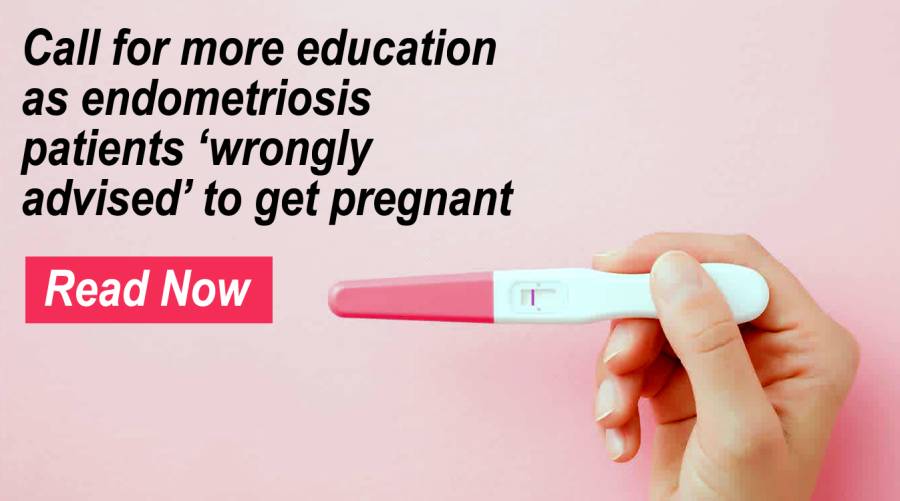Call for more education as endometriosis patients ‘wrongly advised’ to get pregnant

SYDNEY: A study has found that patients grappling with endometriosis are frequently receiving advice to have a pregnancy as a remedy for their condition, despite a lack of scientific evidence supporting this approach, prompting a call for further medical education on the issue to save the patients from potential detrimental impact on their mental health and overall well-being.
The collaborative study was conducted by researchers from the University of Adelaide, the University of Sydney, and EndoActive, a not-for-profit charity committed to raising awareness and advocating for endometriosis.
The researchers surveyed over 3,000 medically diagnosed patients globally and examined the patient experiences, revealing a troubling trend: more than half of the respondents (1,892 out of 3,347) were recommended to pursue pregnancy as a means to manage or treat endometriosis—a condition characterized by severe pelvic pain and infertility.
Shockingly, nearly 90 percent (1,691 out of 1,892) of these recommendations were provided by healthcare professionals, including gynecologists and general practitioners, with 36 percent suggesting it could cure the condition.
Co-author Professor Louise Hull, a fertility expert from the University of Adelaide's Robinson Research Institute, underscored, "Pregnancy or having a baby isn't a treatment for endometriosis, and this advice from health professionals can have negative impacts on those who receive it." She added that, despite good intentions, modern practice offers more effective ways to discuss fertility concerns and options with individuals suffering from endometriosis.
The study also shed light on the adverse effects of such advice on patients' mental health, relationships, major life decisions, and their trust in the healthcare system.
Sharing her experience a respondent how the advice ended up ruining her relationship as she felt a huge pressure to have kids young, and her partner couldn't understand this intense conversation at a young age.
Contrary to these recommendations, the European Society for Human Reproduction and Embryology (ESHRE) Guidelines for Management of Endometriosis explicitly state that patients should not be advised to become pregnant solely to treat endometriosis. Pregnancy does not consistently lead to symptom improvement or disease progression reduction.
Sylvia Freedman, Co-founder of EndoActive and co-author of the research paper, stressed, "EndoActive supports health professionals providing fertility advice in appropriate circumstances, particularly as endo may impact fertility. However, pregnancy advice, especially to curing or treating this condition, is inappropriate because babies are not treatment options, and the advice is not evidence-based."
In response to these findings, researchers are advocating for enhanced education on treating endometriosis for healthcare professionals.
Professor Hull concluded, "Endometriosis affects one in seven women and those assigned female at birth. Asking patients about their fertility preferences while also providing evidence-based advice on the treatment and management of the condition is crucial to improve patient experiences and outcomes."
Trending
Popular
Revolutionary HIV drug can drastically cut treatment costs
-
AI model to improve EEG reading for ICU ...
04:00 PM, 5 Jun, 2024 -
Study links weight-neutral eating ...
04:00 PM, 11 May, 2024 -
Researchers strive to expand telehealth ...
04:00 PM, 11 May, 2024 -
UCFS clinical trial to test efficacy of ...
03:11 PM, 23 Apr, 2024




